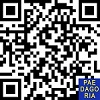ISLAMIC EDUCATION VALUE IN MANDI SAFAR TRADITION
Abstract
Abstract: Religion and tradition have their own meaning, however, hardly are both separated in its practice. Therefore, the study on both term is essential. This research aimed to examine the history, the practice and the Islamic values found in Mandi Safar tradition in Gili Indah village, Pemenang district, North Lombok, and the position of Mandi Safar tradition within the Islamic law. This qualitative research collected data through observation, interview, and documentation and deployed human instrument as the research instrument. The data analysis procedures used were the extension of participation, thorough observation and triangulation. The empirical findings showed that, first, the practice of Mandi Safar as a tradition in the village was inherited by the ancestors of the local community who came from Bugis or Mandar ethnic (Sulawesi). Second, in its Practice, the tradition has several phases, namely preparation, implementation and closing. Third, the Islamic values found in the tradition were discussion for the sake of consensus, environmental preservation, mutual assistance, brotherhood, gratitude, safety, and the economics and political education. Fourth, Mandi Safar as a tradition practiced by Muslims, although remains debatable in the Islamic law, such a tradition entails Islamic education that should be maintained.
Keywords
Full Text:
PDFReferences
Aizat, M., Jamaludin, B., & Ramli, M. A. (2014). Pengambilkiraan al- ‘ Urf dalam Penetapan Hukum Islam Terhadap Makanan Halal. International Journal of Social Policy and Society, 10(1), 73–88.
Al Ghazali, I. (2014). Al-Mursyid Al-Amin Fi Mukhtashari Ihya’ Ulum Ad-Din terj. Achmad Sunarto. Surabaya: Daarul Abidin.
Ashsubli, M. (2018). Ritual Budaya Mandi Safar di Desa Tanjung Punak Pulau Rupat Kabupaten Bengkalis Provinsi Riau. Aqlam: Journal of Islam and Plurality, 3(1). https://doi.org/10.30984/ajip.v3i1.634
Djazuli, S. (2014). Konsep Islam Tentang Pelestarian Ligkungan Hidup. Jurnal BIMAS ISLAM, 7(2), 337–368.
Edy Susanto dan Karimullah Karimullah, & Jurusan. (2016). Islam Nusantara : Islam Khas dan Akomodasi terhadap Budaya Lokal. Al-Ulum, 16(1).
Khoiri, K. (2017). Antara Adat Dan Syariat (Studi Tentang Tradisi Mandi Safar di Tasik Nambus, Riau, ditinjau dari Perspektif Islam). Jurnal Ilmiah Islam Futura, 16(2), 196. https://doi.org/10.22373/jiif.v16i2.873
M. Quraish, S. (2013). Membumikan Al-Qur’an; Fungsi dan Peran Wahyu dalam Kehidupan Masyarakat. Bandung: Mizan.
Muhaimin. (2014). Studi Islam Dalam Ragam Dimensi dan Pendekatan. Jakarta: Kencana Prenada Media Group.
Nur, M. (2015). Pendekatan Filosofis Dalam Studi Islam. Didaktika Islamika, 5(1), 16–45.
Rahmadi, R. (2018). Meneliti Agama dengan Pendekatan Cultural Studies. Jurnal Ilmiah Ilmu Ushuluddin, 17(2), 165. https://doi.org/10.18592/jiu.v17i2.2357
Sasak, D. T. (2012). Filsafat pendidikan islam dalam tradisi sasak. Jurnal Pendidikan Dan Kajian Keislaman El-Hikam, V(2), 37–56.
Sugiyono. (2016). Metodologi Penelitian Kuantitatif, Kualitatif, dan R&D. In CV Alfabeta. https://doi.org/https://doi.org/10.3929/ethz-b-000238666
Zuhdi, M. H. (2017). Dakwah Dan Dialektika Akulturasi Budaya. Religia, 15(1). https://doi.org/10.28918/religia.v15i1.122
DOI: https://doi.org/10.31764/paedagoria.v10i2.1038
Refbacks
- There are currently no refbacks.
Copyright (c) 2019 Universitas Muhammadiyah Mataram

This work is licensed under a Creative Commons Attribution-ShareAlike 4.0 International License.
Paedagoria : Jurnal Kajian, Penelitian dan Pengembangan Kependidikan
Fakultas Keguruan & Ilmu Pendidikan | Universitas Muhammadiyah Mataram.
_______________________________________________
 | Paedagoria : Jurnal Kajian, Penelitian dan Pengembangan Kependidikan |
______________________________________________
CURRENT INDEXING:
EDITORIAL OFFICE:


















